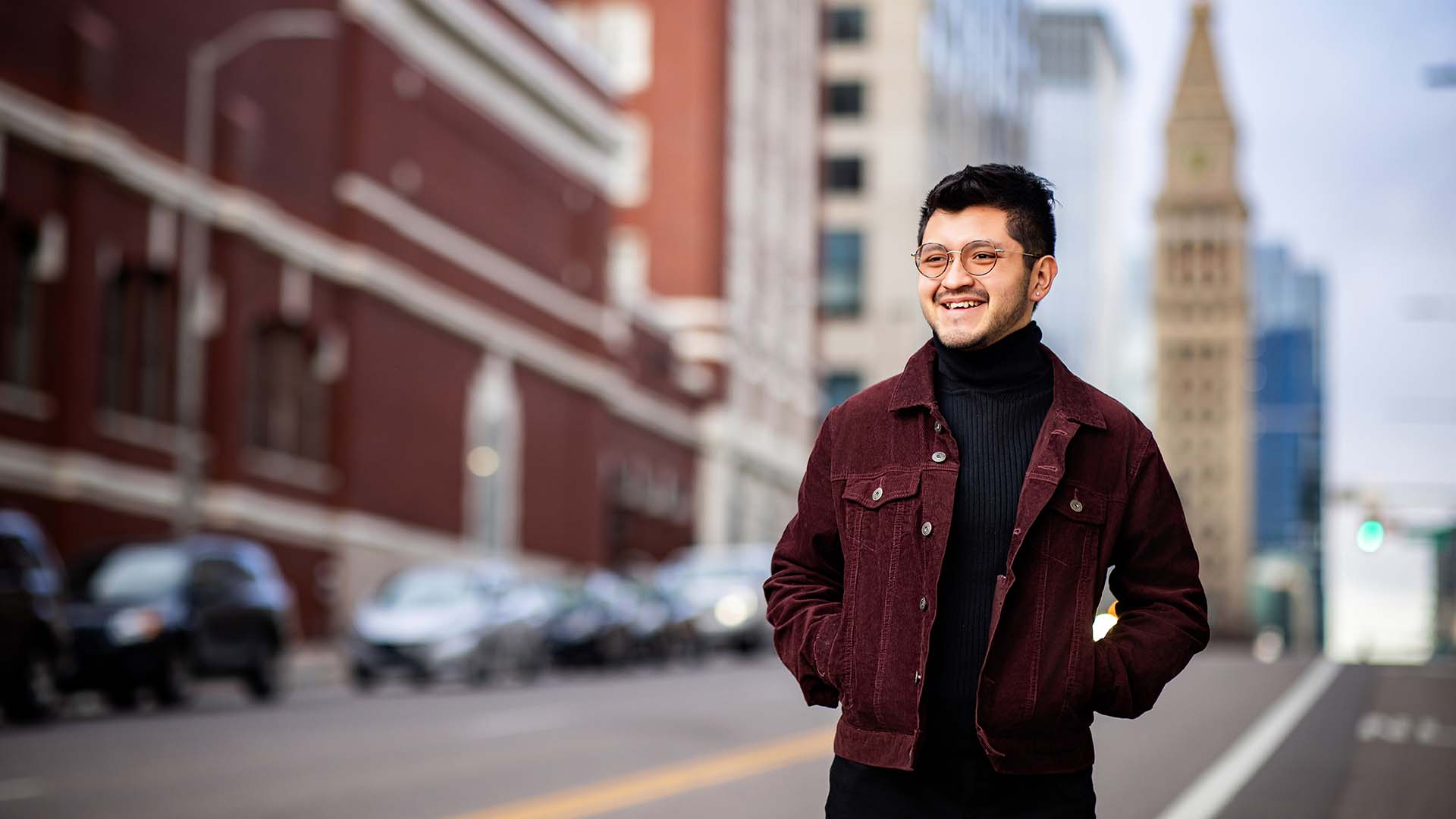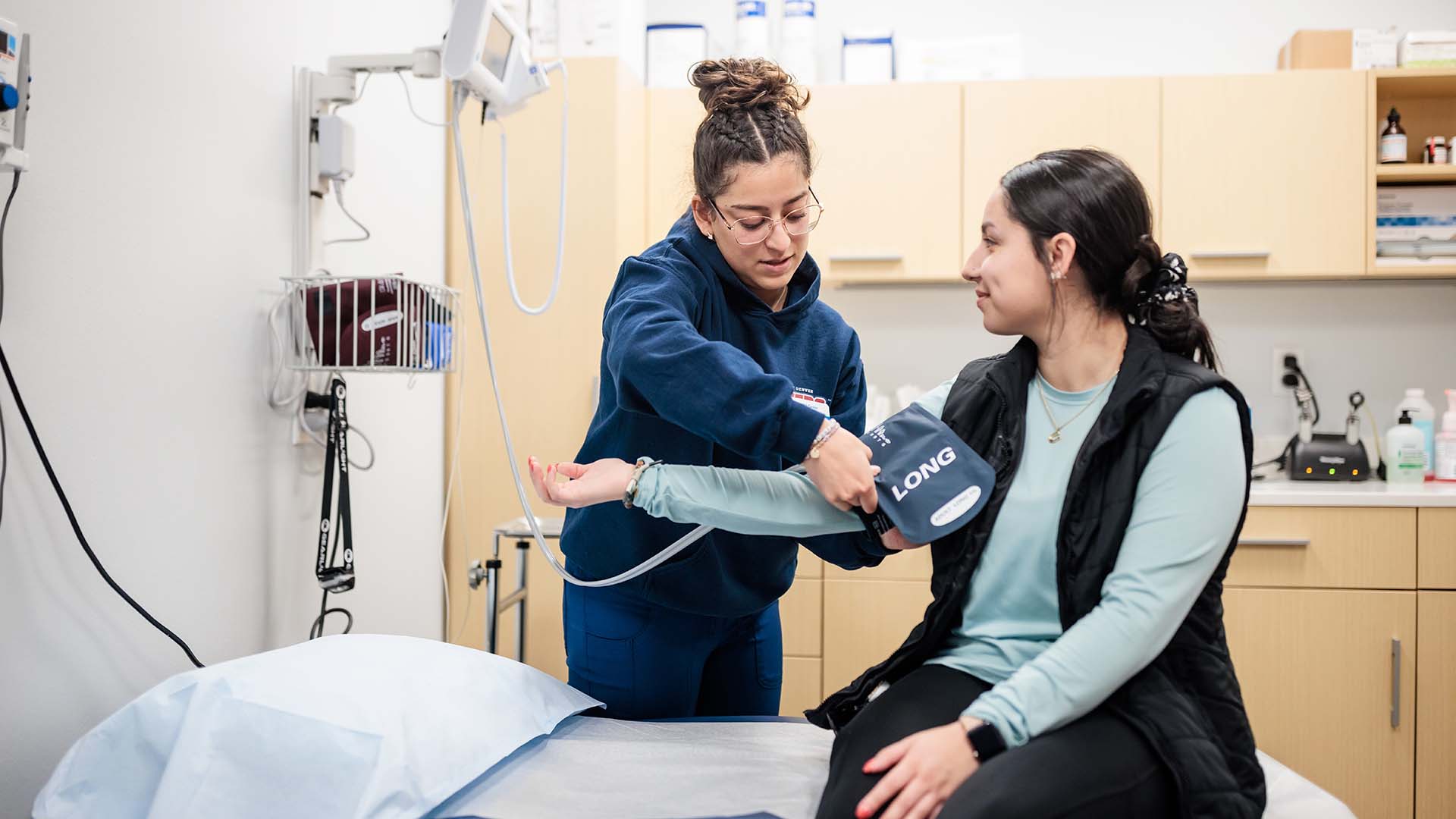Stressed at school? Try breaking boards.
Taekwondo, yoga and other stress-busting activities are helping college students recover their mental health after the pandemic.
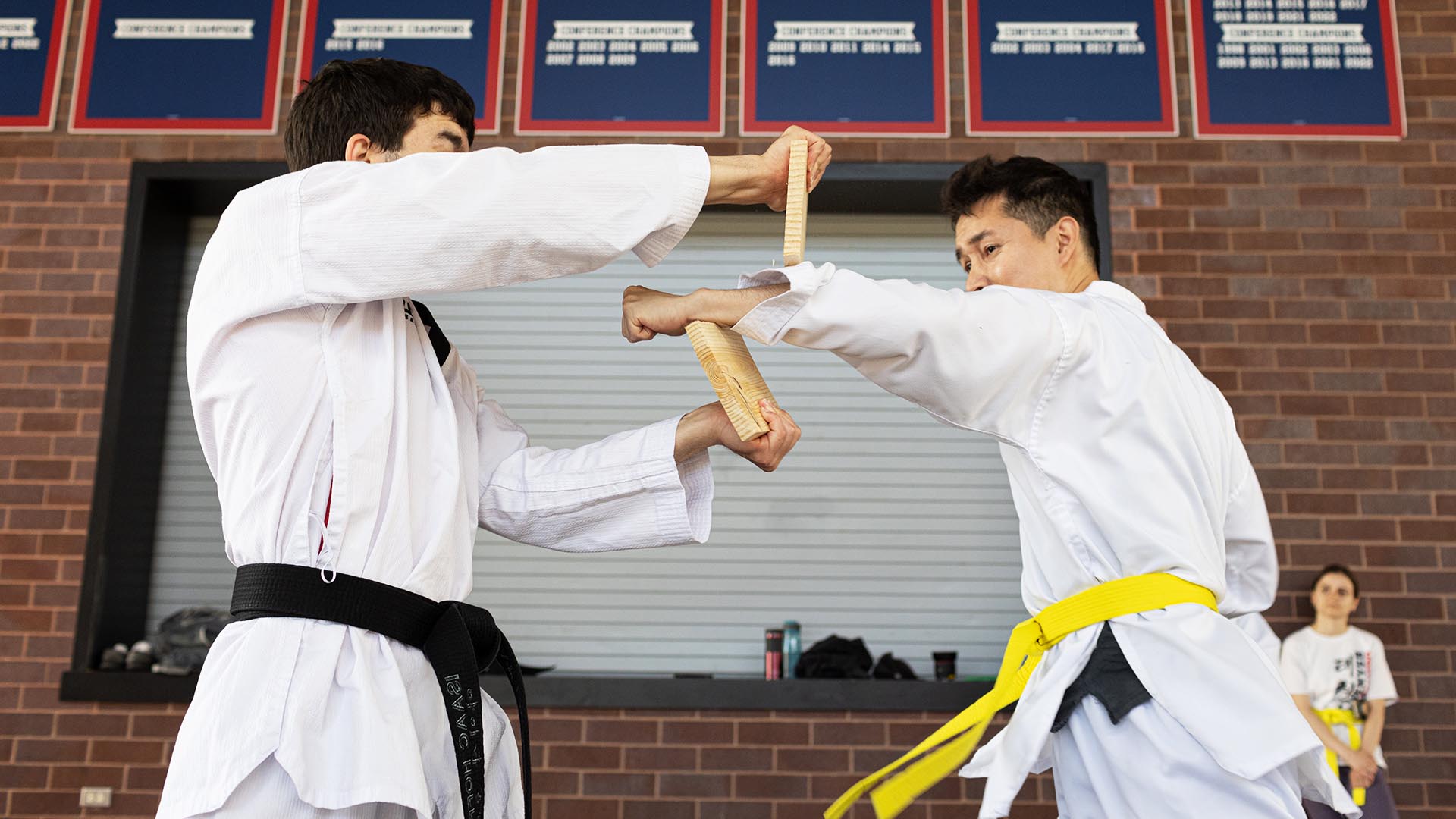
The Department of Exercise and Sport Sciences at Metropolitan State University of Denver is offering for the first time a two-credit scholarship for students committed to the Korean martial art of taekwondo.
For those interested in less aggressive ways to stay fit, the department offers Yoga for Anxiety classes and has received a minigrant to give students exercise watches that track their activity levels outside of physical-wellness classes.
The two programs are part of a broader effort to help students, who are often stressed out, connect exercise with better mental health. Through its Physical Activity and Lifetime Wellness Program, the department offers several classes that not only consist of physical exercise but also include mental-health aspects to help students, many of whom are juggling classes, jobs and other responsibilities.
“The benefits of physical activity on mental health, sleep, stress levels and self-confidence are well documented,” said Susan Bertelsen, Ph.D., professor of Exercise Science. In addition to the emotional lift from exercise, she added, the hope is that students learn how to incorporate healthy changes into their behavior to lead healthier lives.
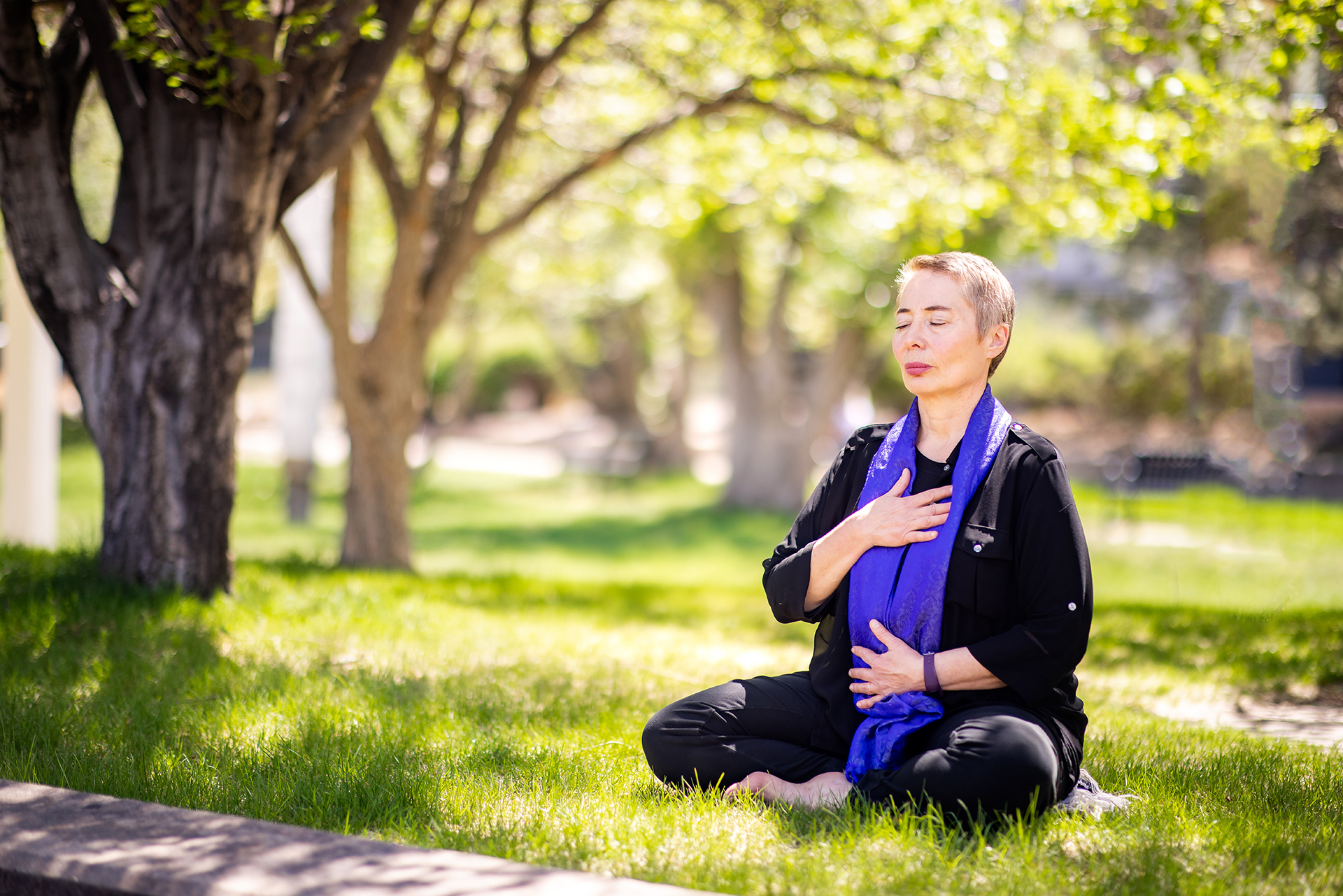
Almost nine in every 10 college students say academic challenges affect their mental health, but only four in 10 believe their school is doing enough to support them.
The American Psychological Association says traditional counseling is ill-equipped to handle a surge in demand for students’ mental-health care. Between coursework, relationships, economic strain and the pandemic, students are facing an array of unprecedented challenges, forcing colleges and universities to think creatively to help students.
Taekwondo
Better known for developing fighting skills, taekwondo has a lot of benefits similar to yoga. Developed in Korea in the 1940s and ’50s, the martial art can help students reduce stress and anxiety by practicing deep breathing, meditation and mindfulness. Other benefits include emotional regulation, increased self-esteem and personal development.
But taekwondo offers something that yoga doesn’t: screaming and breaking boards.
Bill Pottle, affiliate faculty member in Exercise Science and Physical Activity, tells his students to imagine a board as something they’re struggling with.
“When they break through it, there’s so much relief because they’ve actually shattered the physical manifestation of things that they’re trying to break through in their regular outside lives,” Pottle said.
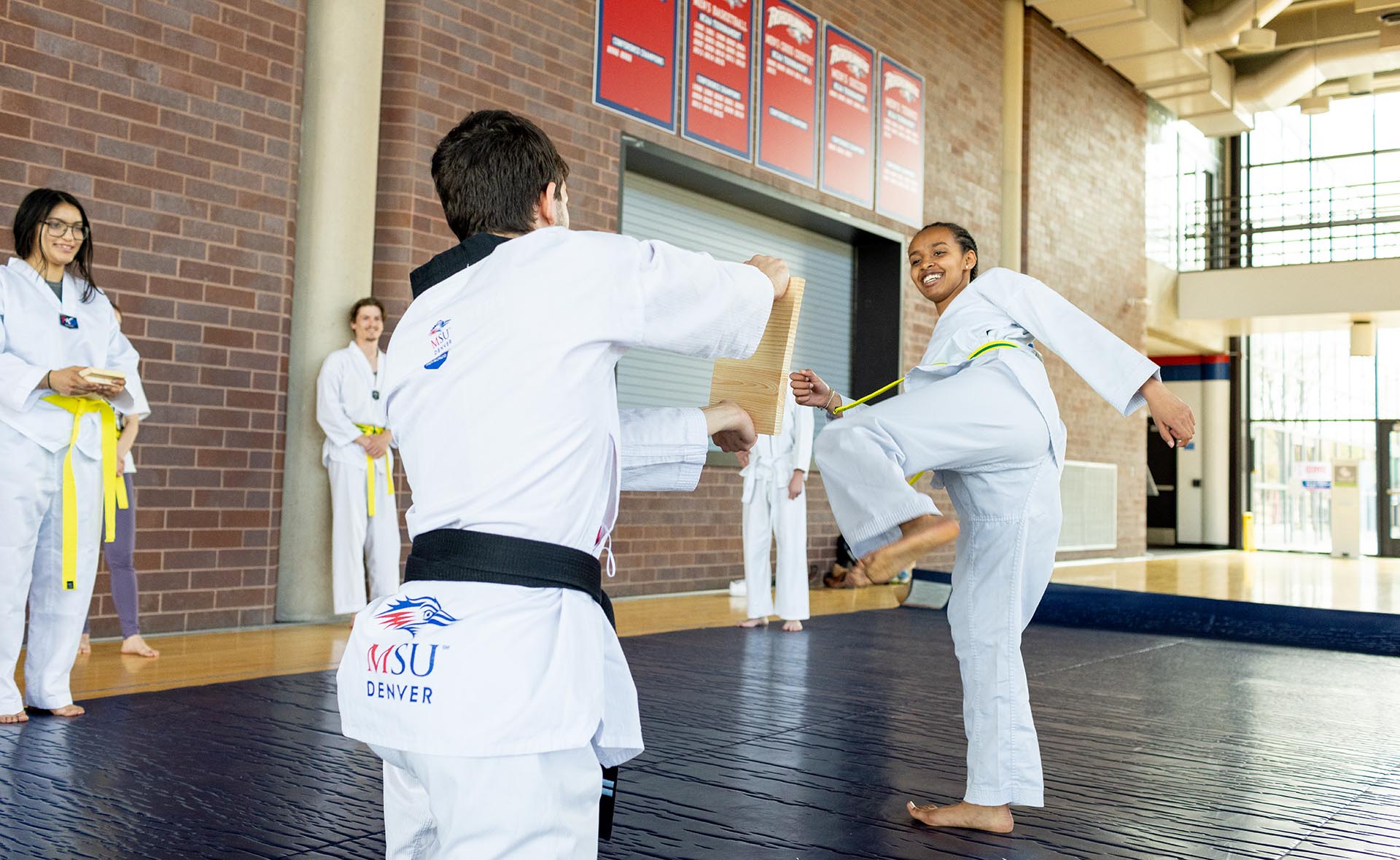
MSU Denver’s taekwondo program started in 1966, making it one of the oldest for-credit taekwondo programs in the United States. The donors of the new two-credit endowed taekwondo scholarship “have a lifelong commitment to and passion for the sport and wish to create an opportunity for students to share that focus,” according to a description on the application page. The deadline to apply for the fall semester is Sept. 14.
Yoga for anxiety
For those not interested in using their fists and feet to reduce stress, the University has for many years offered yoga classes.
In 2018, the school offered for the first time a Yoga for Anxiety course developed by Bertelsen and Svetlana Lambrozo, affiliate faculty member in Exercise Science and Physical Activity, who has taught at the school since 2006. Lambrozo noticed in 2017 that students were struggling with their anxiety levels more than in previous years.
“All of a sudden, more and more students were coming to my classes and sharing that they have anxiety,” Lambrozo said. “And then, I also started doing some research on what’s really happening in the world, and I realize it’s not only my students, it’s at every campus.”
RELATED: Can yoga help with depression?
Lambrozo’s classes help with anxiety by focusing on awareness and encouraging students to communicate with one another, practice the power of positive thinking and set goals for themselves.
“When I turned to yoga before my senior year, I was near a breaking point because of everything going on,” said Garvin Pruneda, who graduated from MSU Denver in May with a degree in Cybersecurity.
“Full-time work and school schedules, while trying to find postgraduate employment and internships throughout, (and) dealing with the more significant issues at large in society,” he said after taking three yoga classes at MSU Denver with Lambrozo. “Yoga made my senior year much less stressful and more enjoyable.”
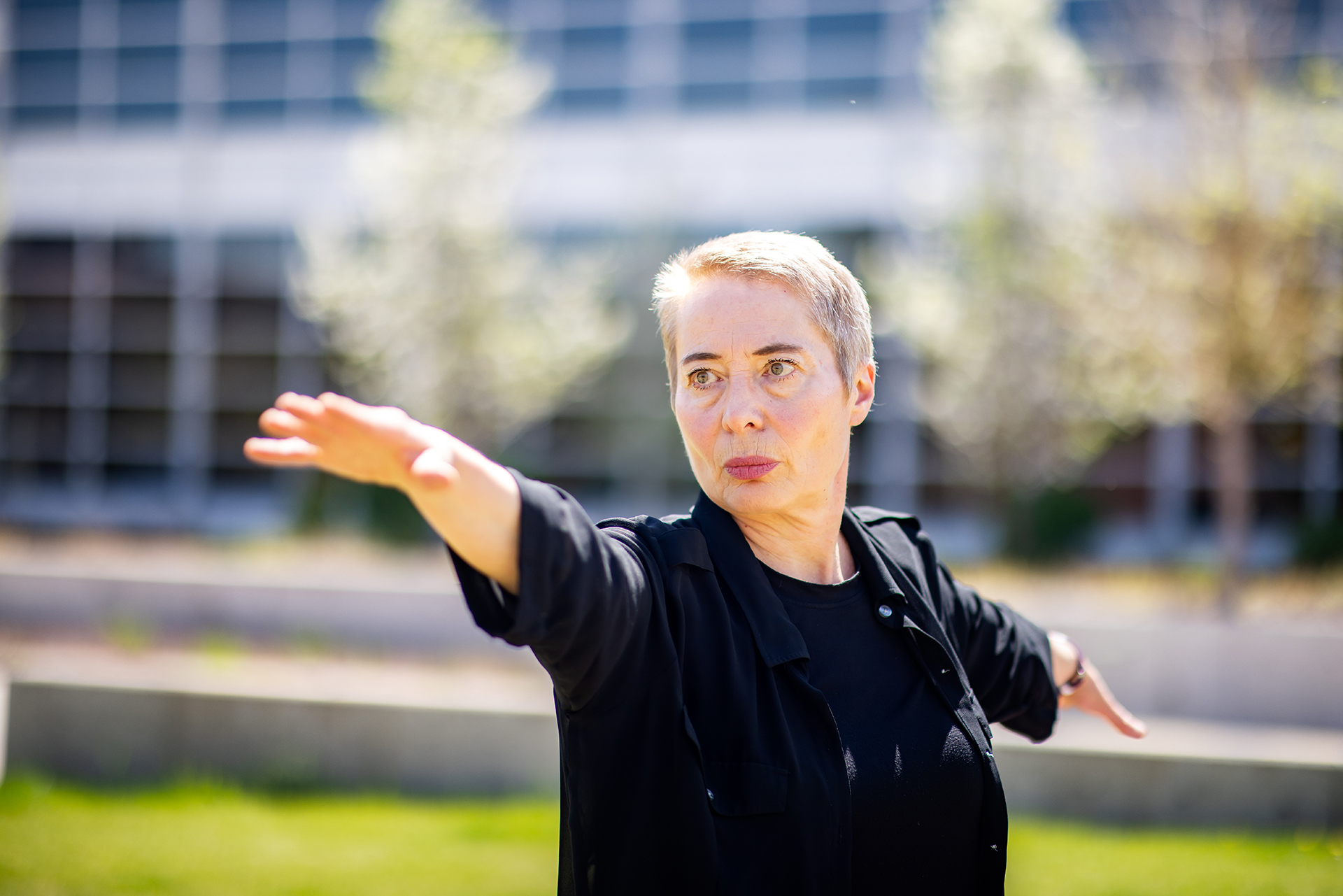
Making it accessible
Fewer than 50% of college students are meeting the physical-activity guidelines set by the U.S. Department of Health and Human Services. Helping students better manage stress has been shown to increase their chances of staying in school, said Bertelsen. Yet for many, finances and cramped schedules make it hard to take the needed steps.
MSU Denver students are more likely to not get enough exercise, considering that 87% are working. That doesn’t leave much time to include exercise in their already-sleep-deprived schedules.
RELATED: 7 tips for a healthy morning routine
The taekwondo scholarship will help minimize the cost barrier for some students, and Bertelsen also recently received a small grant to give students fitness watches that track movement for one or two classes during the fall semester, though which ones have yet to be determined. The hypothesis is that the watches encourage students to be more active throughout the day, not just during their physical-wellness classes.
Additionally, the department has started offering more movement classes online.
“There’s socioeconomic barriers that our students face,” Bertelsen said. “They can’t be on campus all day and take as many classes as they want, so we need to break down those barriers.”


